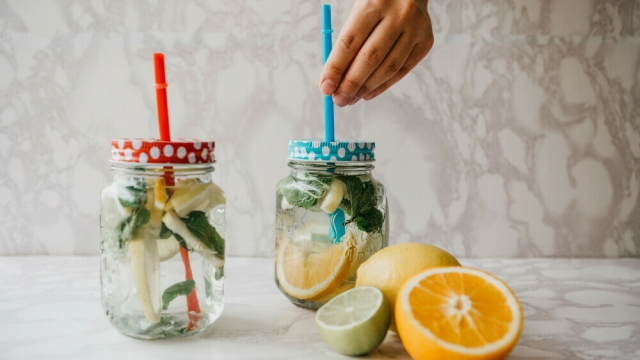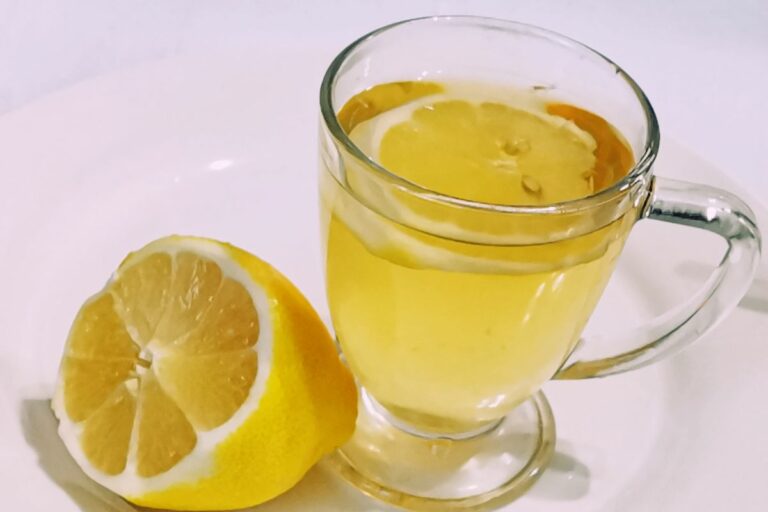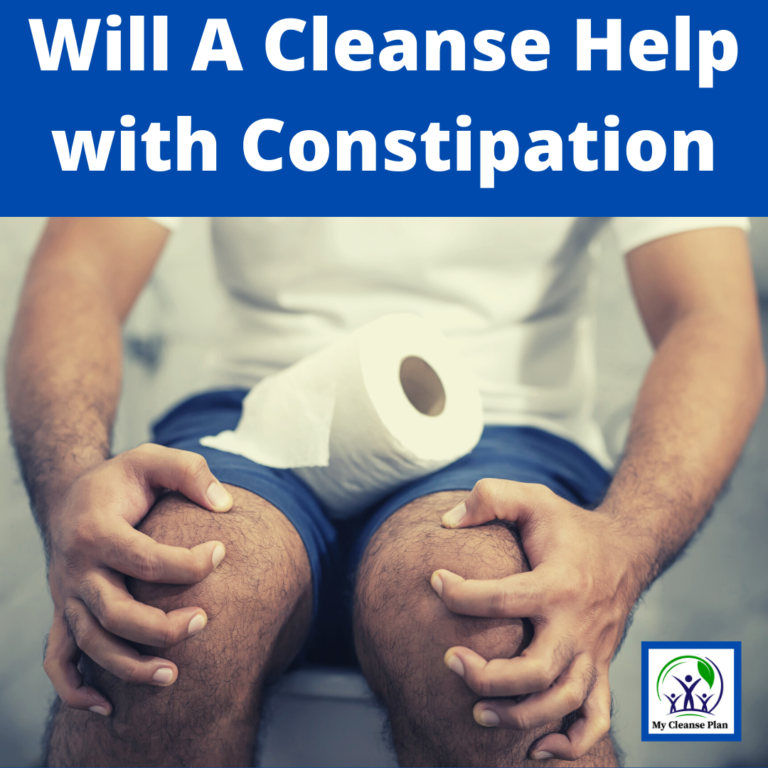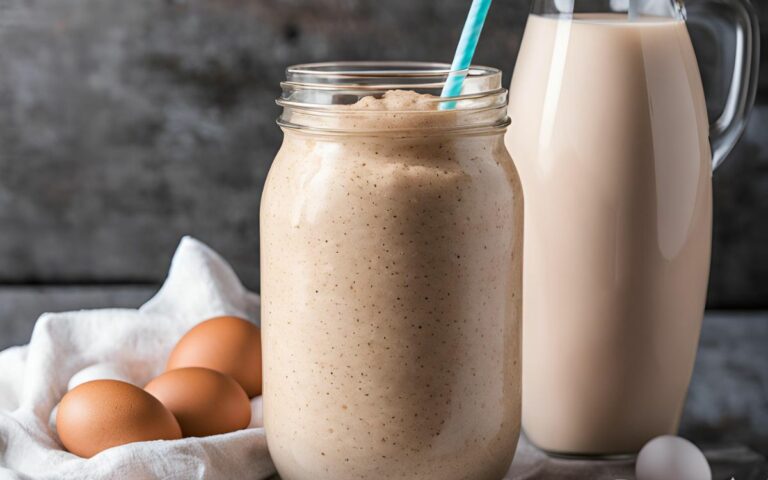Are Cleanses Safe? Cleansing: The Good, The Bad, The Ugly
Like any other major dietary change, a cleanse comes with its own set of benefits, but there can also be some hidden risks to watch out for.
During a cleanse, you are drastically and quickly cutting back on the number of calories you are consuming each day for the duration of your cleanse. It’s no surprise that such a big and sudden change in diet can come as a shock to your system!
I am going to outline some potential dangers, as well as safety precautions that you should be aware of so that you aren’t simply jumping into a cleanse blindly.
Knowing the risks and the proper precautions will help you stay safe and healthy in your cleanse experience.
While cleansing can be a wonderful tool, it is important not to sugarcoat the process and only look at the experience through rose-colored lenses.
By approaching a cleanse with enough knowledge and caution, you are putting your health as a top priority, as it should be. After all, cleanses are a tool of self-improvement! They are important to practice in the safest, healthiest way possible!
Things to Watch Out For When Cleansing
Because there are a wide variety of cleanses out there and none of them are exactly the same, the risks and dangers associated with them can vary greatly as well.
Cleanses that require the most drastic dietary changes are likely to be of higher risk than others, simply because your body is experiencing the greatest amount of change in a short amount of time.
You may be radically changing the types and amounts of nutrients you are consuming and/or greatly reducing your caloric intake during the cleanse.
For example, if you are accustomed to consuming a ton of highly processed foods like cheeseburgers, chips, and desserts on a regular basis and consuming a large number of calories as part of your daily routine. Then jumping straight into a multi-day juice-only cleanse can have some additional risk factors.
If you already feed your body a healthy diet consisting mostly of fruits, vegetables, healthy fats, lean proteins, and whole grains, then a juice cleanse may be of much lower risk for you. Your body is already accustomed to being fueled by a consistently healthy diet! Good for you!
Regardless of your routine dietary practices, the most common negative side effects that people experience during a cleanse are headaches, fatigue, difficulty concentrating or thinking, and feelings and pains associated with hunger.
Related Article: 7 Best Skin Cleansers to Help You Look Great
Learn How to Listen to Your Body When Cleansing
The number one indicator that your cleanse is becoming unsafe for your health, is… surprise… your own body!
Our bodies and minds are constantly communicating back and forth in order to maintain a stable and homeostatic system.
This link between our mental and physical condition is the communication that lets us know when something isn’t right!
Learning to listen carefully and closely to your body and mind, and gaining the ability to pick up on a variety of signals is integral to maintaining your overall health. This is true whether you are doing a cleanse or not!
If at any point during your cleanse you are feeling faint, nauseous, overly weak, or fatigued, then you may need to reassess the parameters and/or the duration of your cleanse.
Related Article: Why You Should Cleanse Your Body
Make Changes When Needed
You can make some small changes to your cleanse routine like adding in some extra protein here and there to keep your body satiated.
If you make some changes and the warning signs still persist or get worse, then unfortunately you may need to call it quits. Your overall health and wellness in the long term should be prioritized over a temporary cleanse!
The huge calorie reduction of a cleanse can easily lead to these negative symptoms, and you are the one that calls the shots.
By understanding your mental and physical feelings, you can make the decision on whether to implement changes or stop the cleanse in its tracks.
Quitting a cleanse early or changing the parameters for the benefit of your health does not make you a failure. It actually indicates the opposite.
Having the capability to listen intently to your body, and taking control of your own health is one of the main benefits of undertaking a cleanse in the first place!
Related Article: The 7 Best Detox Teas to Help Your Immune System
Proper Planning for a Safe and Healthy Cleanse
When planning your cleanse, there are many things to consider that can mitigate risks associated with detox diets.
Think about your typical activity level, the timing and intensity of your cravings, and any health issues you have faced in the past.
Planning your cleanse practices around lifestyle factors like these can help ensure that you are making healthy choices for your own body Mycleanseplan.
Thinking about these things and planning around them can also increase your chances of finishing the cleanse feeling satisfied and successful with the end results.
It is highly likely that after the cleanse period is over, you will have lost a significant amount of weight in a short amount of time.
It is important to have the mental fortitude and realize that if you dive straight back into your old eating habits, then you will gain the weight back due to resuming high-calorie intake.
Related Article: Can You Really Improve Your Immune System With a Cleanse
Take a Break From Exercise When On A Cleanse
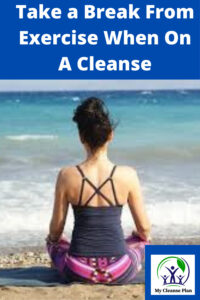
Many people work out on a regular basis, and still consider exercise to be a tedious and chore-like task. If you are one of those people, then going on a cleanse might even be a little cause for celebration!
During a cleanse, it is recommended that you take a hiatus from your workout regimen. This is because your caloric intake will be too low to support the rapid calorie-burning that comes along with intensive exercise.
On the other hand, if you are an exercise-loving person, then you still don’t need to fret too much!
Just take a step back, and rather than performing high-intensity workouts like long-distance running or cycling during the cleanse, give your body a little more rest than normal. Instead, partake in low-intensity activities like yoga, walking, or tai-chi.
A cleanse might afford you the opportunity to try something new and exciting, while also giving much-needed attention to other muscle groups that you don’t normally exercise.
Signs You Should Stop Your Cleanse
Always, always, always remember to listen to your body!
Taking note of how you are feeling physically and mentally is the number one way to tell if you need to stop your cleanse or if it is safe to continue.
If you are consuming far too few calories that you need to function for a long enough time period, your body will let you know.
You will be low on energy, weak, and unable to think straight and remain concentrated for a long time. You might start feeling faint or overly hungry.
Tips and Tricks to Keep Your Cleanse on the Safe Side
While there are some risks involved when trying a dietary cleanse, there are precautions that you can take to mitigate those risks and have a successful experience.
As I outlined above, if you like to exercise rigorously, a cleanse period is a good time to take a step back from breaking a sweat and give your body a little bit of rest.
You will need to preserve your energy and abstain from burning a lot of calories simply because you will be consuming far fewer calories than your body is accustomed to!
Drink Water
Another tip is to make sure you are consuming lots of water throughout the day.
Not only will this trick help make your cleanse more successful (water helps to further expel toxins from the body!), but it can significantly lower the risk that you will experience negative side effects like headaches, dizziness, and hunger pangs.
Staying hydrated has a multitude of benefits for both your mind and your body.
When To Eat
Spreading out your calories throughout the day could be very helpful as well when it comes to avoiding potential pitfalls.
Eating (or drinking) multiple small meals throughout the day rather than a few large ones will help you to maintain your energy levels.
Having easily portable and whole foods like baby carrots or celery sticks with you during the day will give you a healthy snacking avenue in case you begin feeling negative effects between your meals.
Having healthy snack options with you will also help you to avoid caving into unhealthy cravings, or taking a trip to the vending machine.
Talk to your Doctor
Talking to a doctor or another medical professional will help you weigh the pros and cons of a cleanse and make an educated decision on whether it is worth the risks outlined above.
Some people are at higher risk than others, and a doctor can look specifically at your health condition and let you know the associated risks involved for you.
Having this conversation with a professional in the medical field is the only surefire way to educate yourself on whether you have specific risk factors that can make a cleanse higher risk.
Explore Also:
Creativehouseblog
Dietsheriff
Gigasecurehome
Final Thoughts
When you begin your cleanse, don’t forget why you are doing it.
There may be times when you are feeling a little hungry you want to grab something to eat, but this will be normal. Y
ou already know how your body lets you know when it’s time to eat or not. Learning to listen to our body is very important whether you are on a cleanse.
You can start with a simple one to three-day cleanse and work your way up. When I first tried a cleanse, it was only a one-day juice cleanse. You can start simple and small, then expand as needed.
Stay safe and see what a cleanse can do for you!
Other Articles to Read
Is A Cleanse Good For You
What Is The Difference Between A Cleanse And A Detox
Why You Should Cleanse Your Body
Here is a PIN you can share with your friends on Pinterest:






